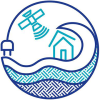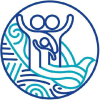What is PILNA's purpose?
On this page
The PILNA programme is a commitment by Pacific Island governments and development partners to monitor the performance of education systems in developing learners’ literacy and numeracy.
It measures student achievement on a regular basis and within an agreed common framework. This provides information that is timely, useable, and comparable across the region.
The PILNA report provides information to ministries and departments of education, education stakeholders, and development partners about literacy and numeracy proficiency at primary school levels.
Trends in student performance, ongoing challenges, and the impacts of countries’ efforts to address student performance are shown in the report. PILNA results have been used at national and regional levels as indicators of progress for education systems towards global development goals, regional targets, and national priorities.
The PILNA programme provides more than data and evidence for stakeholders; the programme builds capacity through the collaborative involvement of country representatives.
By doing this in its implementation, the programme helps to strengthen learning assessments, standards, and policies, while also supporting improvement in teaching and learning across the region.
Principles of PILNA
Pacific countries have agreed to focus on six guiding principles to achieve the purpose of PILNA.
- Assessment methodologies and types of data: The PILNA programme continues to improve its assessment methodologies to provide reliable and valid cognitive and contextual data at the regional and country level.
- PILNA content: The skills and concepts that form the content of PILNA are guided by the definitions and indicators outlined in the 2016 Pacific regional benchmarks for literacy and numeracy.
- Monitoring purpose of PILNA: The data generated from PILNA enable the monitoring of student learning in literacy and numeracy. Additionally, PILNA enables collection of background data on students, teachers, and schools at regional and country levels.
- Recognition of the value of good literacy and numeracy skills: The PILNA programme promotes the importance of literacy and numeracy skills as building blocks for children’s future learning opportunities. It also empowers citizens to communicate effectively, to make informed decisions, and to take active control of their future.
- Intervention as the added value for countries: The PILNA programme adds value for countries by enabling them to use regional and country-level data as evidence of student learning achievement for the development of targeted intervention strategies.
- Collaboration among stakeholders for good quality data: The PILNA programme is designed in such a way as to enable a range of data collection with strict adherence to technical standards. Collaboration among organisations and governments is a critical feature of PILNA administrations.
Sustainable development through PILNA
The PILNA programme is purposefully linked to the United Nations Sustainable Development Goals (SDGs): the primary global sustainable development agenda with environmental, social, and economic dimensions (UNDP 2015).
PILNA is most directly associated with SDG 4, which covers the quality of education around the world specifically by providing governments, schools, communities and students with an assessment of the literacy and numeracy skills of students who have completed four and six years of basic education, including students with special needs.
This information is valuable as it enables stakeholders to understand the need for and to develop policies and interventions to improve the learning outcomes of young people in Pacific countries.








